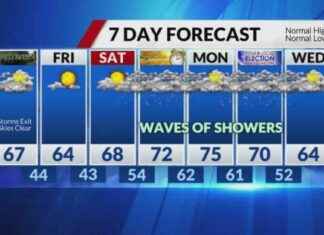Scores of filmmakers attending the awards gala at the Burbank International Film Festival in California erupted in applause and cheers.
It happened on Sunday night. The Writers Guild of America (WGA), which represents more than 11,500 members, and major Hollywood companies and studios (AMPTP) reached a preliminary agreement that may resolve the protest . This will mean an end, if approved, to one of the longest strikes in the entertainment industry.
But the actors continue with the strike. Although the screenwriters’ union called off picketing after 146 days since May 2 (the record was 154 days in 1988), they encouraged the actors to join their colleagues.
“WGA has reached a principle of agreement with the Amptp”, according to a press release from the union, which is chaired by Meredith Stiehm, and in which it thanked the solidarity of its subscribers.
They will have the reward they are looking for, as they achieve most of the demands, such as an increase in royalties for the dissemination of content on the platforms (the so-called residuals), an increase in the contribution to pensions, an increase in the minimum wage , pay equity measures, and the assurance that artificial intelligence (AI) will not encroach on or replace writers’ credits and compensation.
Not all hurdles have yet been cleared for the ratification of this three-year agreement. At the moment it is a proposal. Union leaders will vote Tuesday on whether to approve the contract. If they ratify it, then they will put it to a vote among all union members. In the event that they approve it, which is what is expected, since there is satisfaction, the return to work would be relatively easy. Meanwhile, there is a margin for the negotiations of the actors, grouped in the union SAG-Aftra. Their representatives have yet to resume talks with the studios.
The joint strike of writers and actors has caused a huge upheaval in the world of cinema and television. More than 100,000 people, such as cameras, make-up artists or carpenters, among other trades, have lost their jobs. There has been a total slowdown in productions, from the big budget ones, like the new installments of Mission Impossible or The War of the Galaxies, to the late night shows of the small screen. The Grammy Awards were postponed.
Both have similar claims, both in terms of residual payments (income from replays) and strict protection against the use of AI. Actors fear that their artificially generated image will be used.
All of this is happening amid intense structural upheaval in Hollywood, which is grappling with how to successfully embrace the digital and “smart” age or survive the decline of viewers in traditional broadcast entertainment.








